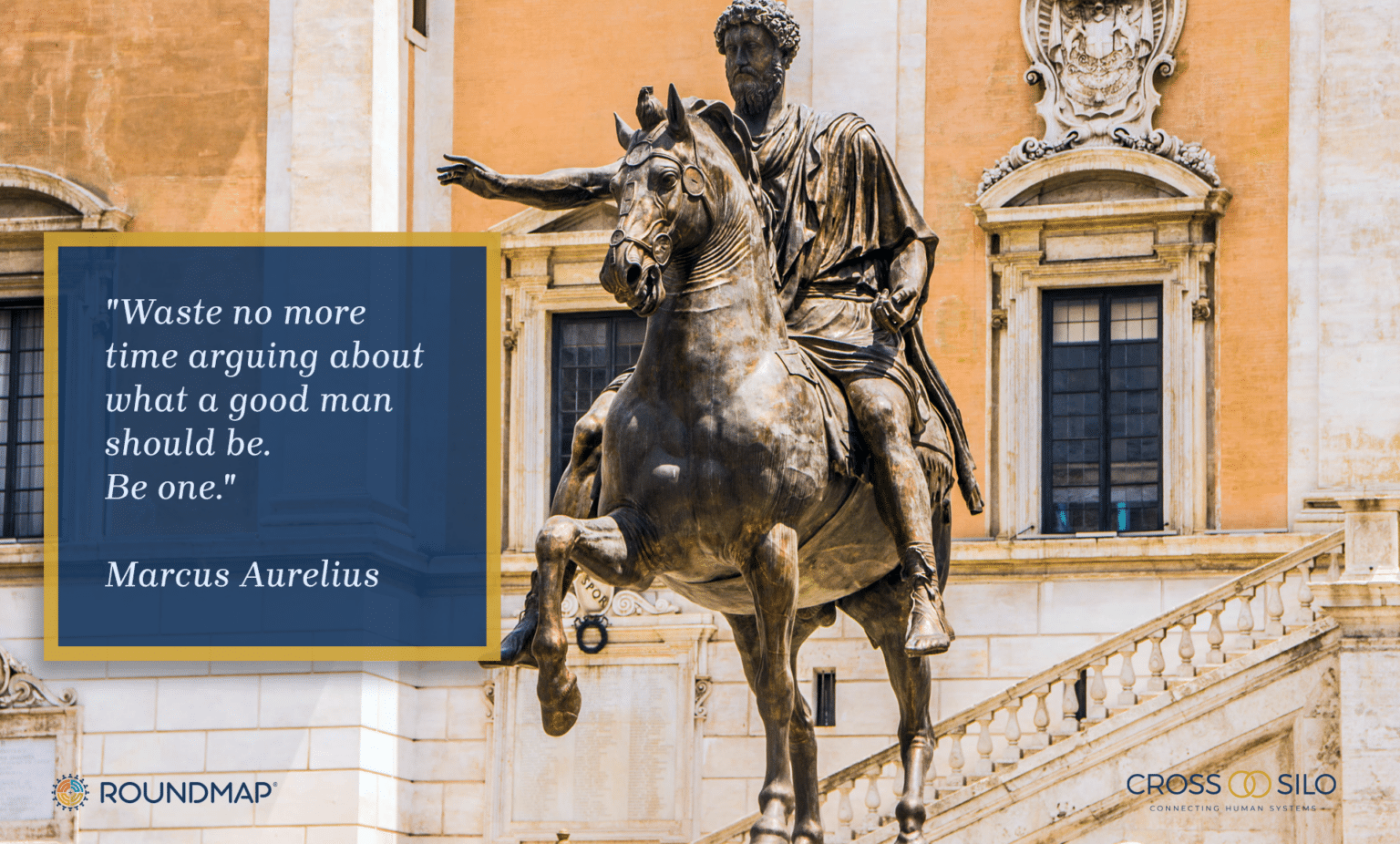We advocate for a comprehensive declaration of responsibility for corporate directors, akin to the oaths taken by doctors and the ethical commitments upheld by politicians. Just as doctors swear to the Hippocratic Oath to prioritize the well-being of their patients, and politicians pledge to serve the public interest with integrity, we believe corporate directors should be held to a similarly high standard of accountability and responsibility.
This declaration would affirm their commitment to ethical leadership, transparency, and sustainable practices, ensuring that decisions made at the highest levels of business prioritize not only shareholder value but also the well-being of employees, customers, communities, and the environment. By fostering a culture of accountability and stewardship, we can drive systemic change and inspire a new era of responsible corporate governance that benefits society as a whole.
The Marcus Aurelius Oath for Corporate Directors
In the spirit of Marcus Aurelius, the esteemed Roman emperor and Stoic philosopher, we propose the Marcus Aurelius Oath for corporate directors. Just as doctors adhere to the Hippocratic Oath, corporate leaders should commit to an oath inspired by the wisdom, integrity, and ethical leadership exemplified by Marcus Aurelius.
The Marcus Aurelius Oath
I solemnly swear to uphold the highest standards of ethical leadership and personal integrity in my role as a corporate director. Inspired by the wisdom and virtue of Marcus Aurelius, I commit to:
Duty to Stakeholders: Prioritize the well-being and interests of all stakeholders, including employees, customers, shareholders, communities, and the environment.
Ethical Decision-Making: Make decisions guided by principles of fairness, justice, and transparency, ensuring that all actions contribute positively to society.
Personal Integrity: Lead by example, maintaining honesty, humility, and accountability in all professional and personal conduct.
Sustainable Practices: Promote and implement sustainable business practices that ensure the long-term health and prosperity of the organization and the world.
Continuous Learning: Strive for continuous improvement and wisdom, remaining open to new ideas and committed to personal and professional growth.
By embracing the Marcus Aurelius Oath, corporate directors can aspire to lead with the philosophical clarity, ethical commitment, and sense of responsibility that defined one of history’s greatest leaders, ensuring their decisions foster a sustainable, equitable, and prosperous future for all.

Introduction to Marcus Aurelius's Meditations and the Relevance of the Marcus Aurelius Oath
Marcus Aurelius, the Roman emperor from 161 to 180 AD, is revered not only for his leadership but also for his profound contributions to Stoic philosophy, encapsulated in his personal writings known as “Meditations.” Written as a series of reflections during his military campaigns, “Meditations” provides deep insights into his thoughts on duty, virtue, leadership, and the human condition. It remains one of the most influential works on Stoic philosophy, offering timeless wisdom on how to live a life of integrity and purpose.
In the context of corporate governance, Marcus Aurelius’s “Meditations” is particularly relevant. The principles he espoused—such as ethical conduct, personal responsibility, and the pursuit of the common good—are foundational to effective and responsible leadership. By drawing on the teachings of Marcus Aurelius, modern corporate directors can find a robust ethical framework to guide their decisions and actions.
The Marcus Aurelius Oath for corporate directors is a contemporary application of these ancient principles. Just as doctors adhere to the Hippocratic Oath, and politicians commit to ethical standards, corporate leaders should also have a guiding set of principles that emphasize their duty to all stakeholders and society at large.
Relevance and Perception of the Marcus Aurelius Oath
The Marcus Aurelius Oath is designed to be perceived as a solemn commitment to ethical leadership and corporate responsibility. It should be viewed as a cornerstone of modern corporate governance, highlighting the importance of integrity, fairness, and sustainable practices. This oath serves as a reminder that corporate decisions should not solely focus on short-term profits but should also consider long-term impacts on society, the environment, and future generations.
By adhering to the Marcus Aurelius Oath, corporate directors are not only honoring the legacy of a great historical figure but also setting a new standard for ethical leadership in business. This oath aligns with contemporary movements toward corporate social responsibility (CSR) and environmental, social, and governance (ESG) criteria, making it highly relevant in today’s business landscape.
Historical Adherence and Modern Adoption
While the Marcus Aurelius Oath is a modern construct, the principles it embodies have been adhered to by many great leaders throughout history. Leaders who have embraced Stoic philosophy, such as Nelson Mandela and Mahatma Gandhi, have demonstrated how the timeless wisdom of Marcus Aurelius can guide ethical and effective leadership.
In the corporate world, many visionary leaders have implicitly followed similar principles. Companies that prioritize stakeholder engagement, ethical conduct, and sustainability, such as Patagonia, Unilever, and Ben & Jerry’s, exemplify how modern businesses can operate successfully while adhering to the values reflected in the Marcus Aurelius Oath.
By formally adopting this oath, corporate directors can join a lineage of principled leadership, ensuring their actions contribute to a fairer, more sustainable, and prosperous world for all.
The best translation of “Mediations” can be found here, on Amazon (no affiliation).
Author
-
Edwin Korver is a polymath celebrated for his mastery of systems thinking and integral philosophy, particularly in intricate business transformations. His company, CROSS-SILO, embodies his unwavering belief in the interdependence of stakeholders and the pivotal role of value creation in fostering growth, complemented by the power of storytelling to convey that value. Edwin pioneered the RoundMap®, an all-encompassing business framework. He envisions a future where business harmonizes profit with compassion, common sense, and EQuitability, a vision he explores further in his forthcoming book, "Leading from the Whole."
View all posts

